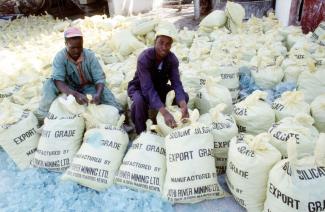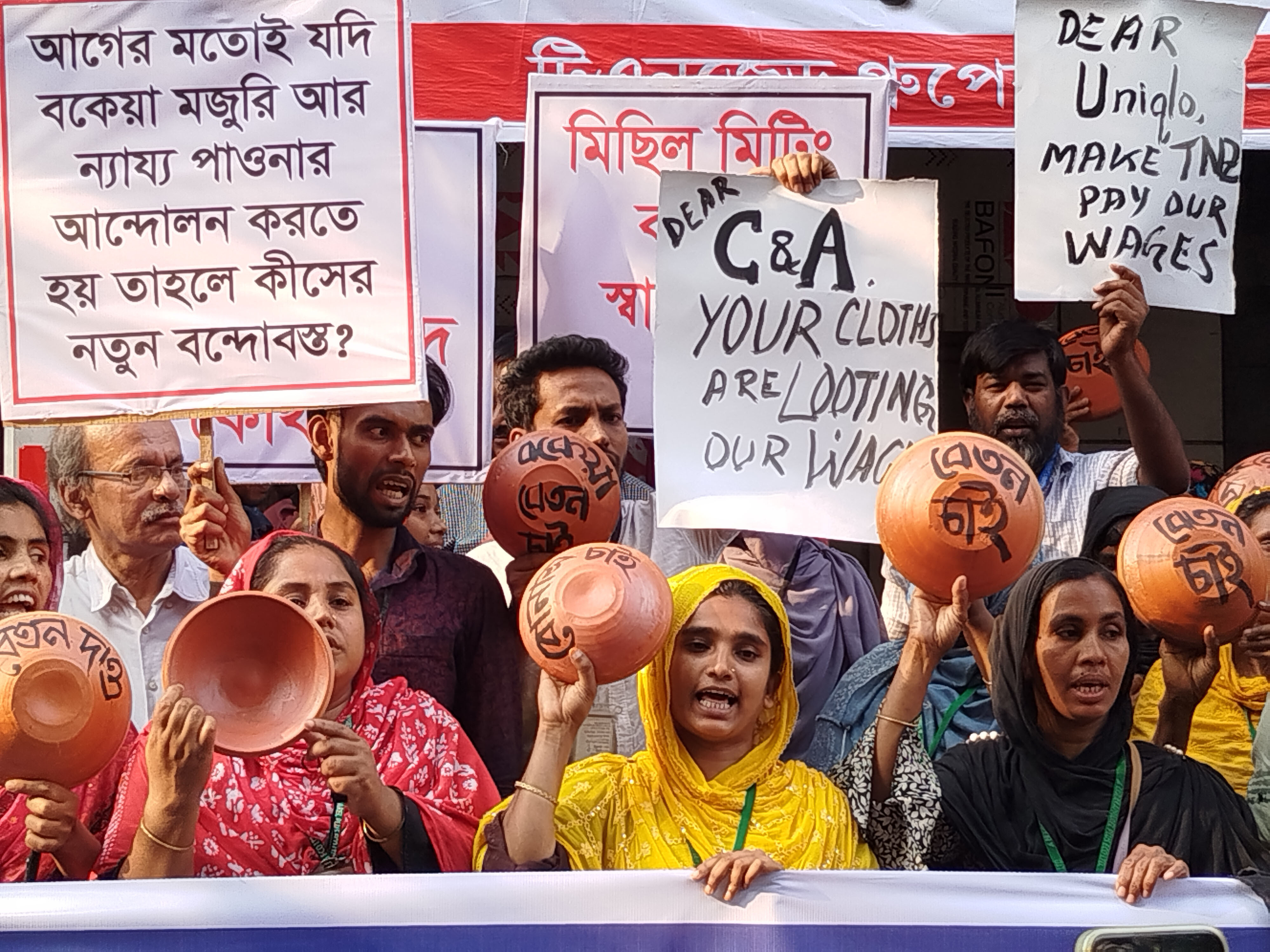Continental Free Trade Area
A milestone for African trade

The agreement comes into force at a time when much of the world is turning its back on cooperation and free trade. Due to the Covid-19 pandemic, the global economy is in a lurch between stagnation and recession. For Africa, the creation of the massive regional AfCFTA market is a great opportunity: it should help countries diversify their exports, accelerate growth and attract foreign direct investment.
Many African countries still rely on revenues from commodity exports. Industrialisation is progressing only slowly. Africa predominantly imports capital goods and even food products from outside the continent. Accounting for less than three percent of global trade, Africa has yet to diversify its exports. Moreover, only 17 % of African exports are intracontinental. In the EU, the comparative share is 68 %.
The untapped potential for intra-African trade thus remains great. Major scope for improvement lies in the removal of non-tariff barriers, which include uncoordinated bureaucratic procedures, long waiting times at borders and obstructive, time-consuming export regulations. Obstacles of this kind push up trading costs across the continent. The situation is made worse by inadequate transport and logistics infrastructure. As a result, Africa has been connecting faster with the rest of the world than within itself.
That is now set to change due to AfCFTA. It will be the largest free trade area in the world in terms of the number of member states. The agreement creates a market of 1.3 billion people in 54 countries with a combined gross domestic product (GDP) of $3.4 trillion.
AfCFTA aims to lower trading costs and make it possible for African partners to more successfully become involved in global supply chains. More than 90 % of intra-African customs tariffs will be eliminated, non-tariff trade barriers will be dismantled and the result will be a single internal market with free movement of goods and services. At the same time, bureaucracy will be reduced and customs procedures simplified. These measures will make for significant gains in revenue. But AfCFTA covers more than just trade. It will also will have helpful impacts on the movement of people and workers, competition, investment and intellectual property.
Transcontinental trade
In the long term, this free trade area will benefit not only intra-African trade but also trade with other continents. It will facilitate investment and trade with partners in the EU for example. It will also promote sustainable economic growth and regional integration across what is today a highly fragmented continent. Properly implemented, it has the capacity to boost Africa’s economic growth and create sustainable employment for millions of people. By addressing the structural economic causes of underdevelopment, AfCFTA should thus help drive down poverty.
The World Bank takes the same view. It reckons that AfCFTA will raise regional income by 7 % or $450 billion by 2035 and that the anticipated wage growth could lift more than 30 million people out of extreme poverty. At the same time, it expects wages for skilled and unskilled workers to be boosted by around 10 percent.
Creating jobs
Successfully implemented, the agreement would increase African exports by $560 billion, mainly in the important manufacturing sector (see World Economic Forum, 2021). This would create much-needed jobs for Africa’s young populations. The Mo Ibrahim Foundation estimates that if AfCFTA works as intended, it could generate combined consumer and business spending of $ 6.7 trillion dollars by 2030. It will also transform markets and economies across the region, leading to the creation of much-needed downstream processing industries and the expansion of key sectors. Ultimately, African countries will become more competitive globally.
But a successful AfCFTA could do even more than that. The concept of “trade integrity” gives an opportunity to promote good governance in many African countries in an entirely new manner. Trade within the free trade area will be on a uniform legal basis built on the principles of lawfulness and transparency, so the marketing of illicitly procured or produced goods will become more difficult. This applies to the sale of illegally mined commodities as well as goods produced by child labour, for example. AfCFTA member states, in turn, will themselves have to monitor compliance with the agreed standards more strictly, which will improve the quality of their governance.
Challenges ahead
At the same time, the historic AfCFTA accord still faces challenges. Good intentions are not enough. What counts is implementation. So, first and foremost, steady progress needs to be made on implementing the agreement. A recent article by the African Centre for Economic Transformation (ACET) shows how the agreement will speed up economic development, helping Africa to “escape the colonial legacy”. However, ACET stresses that “the devil is in the implementation” and recommends a bottom-up approach focusing on national problems that require transborder solutions such as sharing water resources as well as other regional infrastructure projects.
Adequate infrastructure will be essential for AfCFTA success. According to the African Development Bank, Africa’s infrastructure requirements are substantial, ranging from $130 billion to $170 billion a year. The funding gap is between $68 and $108 billion dollars. Europe should seize the opportunity to help close that gap and contribute to the realisation of the necessary infrastructure projects. The EU could set up a joint infrastructure fund for the purpose.
Such a fund could not only provide effective support for the further development of the African Free Trade Area; German and European companies could also play an active part in infrastructure projects in Africa. At present, they are still too often deterred by uncertainty over funding conditions for potential projects, which results in investments not being made.
Germany and the EU should step up their efforts to help AfCFTA strengthen intra-African trade. For example, the African Union Commission – as the responsible body for the implementation of the AfCFTA – should be strengthened in further negotiations so national governments will implement AU decisions faster. The implementation of the agreement, the progressive integration of the free trade area and the negotiations to reduce trade barriers will remain crucial for some time to come.
In order to achieve tangible results, however, it is also important to ensure that the private sector can take advantage of the new market opportunities presented. To attract investment – whether it be local, regional or from third countries – African states need to further improve the environment for business and take steps to facilitate trade. Here, too, the EU can assist the AU. A fully implemented AfCFTA will be more than an inner-African milestone. It will be the way for an entirely new chapter in African-European relations.
Link
World Economic Forum (WEF), 2021: 6 reasons why Africa’s new free trade area is a global game changer
https://www.weforum.org/agenda/2021/02/afcfta-africa-free-trade-global-game-changer
Christoph Kannengießer is chief executive officer of the German-African Business Association (Afrika-Verein der deutschen Wirtschaft).
post@afrikaverein.de
www.afrikaverein.de















